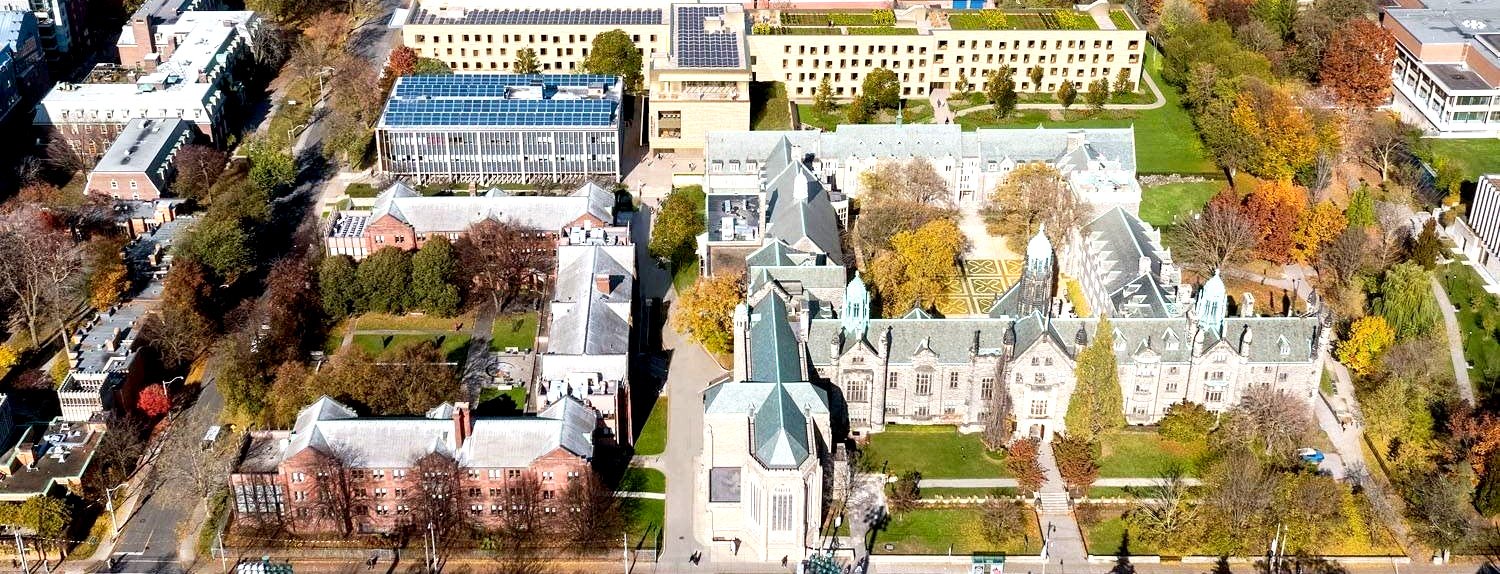The costs of the current food system to the environment and human health are unsustainable on planet earth.
We fund
Climate and Sustainability Leadership initiatives in order to:
Inspire future leaders by demonstrating sustainability in action
Raise awareness by incorporating sustainability into public spaces and infrastructure
Integrate sustainability into the education system to inform next generation advocacy and decision-making
Create positive change in individual behaviour such as buying habits and voting preferences
Encourage support for and adoption of impactful public policy
Provide relevant skills and knowledge equipping future leaders to make a difference
In 2016, we began providing multi-year funding to help organizations to establish significant Climate and Sustainability Leadership initiatives.
.
-
The Lawson Climate Institute will play a leading role in helping Canada achieve net zero by 2050 by educating the next generation of climate leaders, mobilizing talent and innovative ideas, and expanding on U of T’s world-leading sustainability research. This work will accelerate our transition to a healthier, more sustainable and prosperous future for everyone.
The institute focuses on four key areas:
Creating new sustainability technologies by sharing knowledge and defining new fields of research to develop and implement innovative, scalable climate solutions
Developing effective climate policies to help incentivize private sector change and support an equitable and efficient transition to a green economy
Preparing future leaders to champion sustainability in their respective careers by establishing a multidisciplinary community of scholars and academics engaged in climate change-related issues
Leveraging U of T’s three campuses as living laboratories that model sustainable practices with the potential for use beyond the university
The Lawson Climate Institute brings together University of Toronto experts across all faculties and campuses to collaborate and develop effective, scalable and equitable solutions to help address the complex challenges of climate change.
-
We are funding this investment in support of students, to enhance academic programming, and to build a new landmark building, which is currently under construction.
The building is the creation of a ‘living lab’ that showcases the importance of sustainability and demonstrates what is possible. It will offer student residence space, classrooms, indoor and outdoor communal areas, dining areas and urban gardens. Lawson Centre for Sustainability’s ambitious targets include internationally recognized LEED Platinum Certification and certification under the Canadian Green Building Council Zero Carbon Building Standard.
The Integrated Sustainability Initiative will integrate fluency in sustainability into academic programs and enable students to take advantage of new learning opportunities focused on sustainability both inside the classroom and through research and internships. A new Director of Sustainability will support these activities and will oversee the development of academic and co-curricular sustainability programming including internships and community outreach. -
ClearWater Farm is located on a 180-year old farm situated on the shores of Lake Simcoe and has four strategic objectives:
1. Place-based Education: Engaging children and youth in experiences that lead to a future where good things happen when people care about food, water, the land, and each other.
2. Educational Farming: Showcasing organic and regenerative approaches to food security through providing innovative experiences in growing, cooking, enjoying and celebrating food.
3. Water Conservation: Using interactivity to increase our understanding of how wise land use can improve the health of the lake, and mitigate changing climate and extreme weather effects.
4. Economic Development: Anchoring community efforts to help Georgina be a place with vitality that is deeply connected to Lake Simcoe and boasts a local food economy.
Our funding has supported the construction of greenhouses to extend the growing season, restoration of the historic barn and programming to train aspiring farmers. -
Nawalakw is an Indigenous-led charitable organization located in the heart of the traditional and unceded territory of the Ḵwiḵwa̱sut̓inux̱w people, one of the four tribes of the Musǥa̱makw Dzawada̱ʼenux̱w, in one of the richest and most diverse biospheres on earth.
Nawalakw brings together youth and elders, providing traditional teachings in all aspects of the Kwakwa̱ka̱’wakw culture and environmental stewardship, as part of a community-led, land-based healing initiative.
Nawalakw and related businesses will employ over 100 people from local villages and the surrounding Kwakwa̱ka̱ʼwakw territory, while protecting the biodiversity of this sacred place.
Renewable Energy System at Hada
Funding from the Brian and Joannah Lawson Family Foundation is being used to support the construction of a 23 KW Turgo "micro-hydro" generating facility at hi'manis k'ak'utla'at'si - the Nawalakw Language and Culture Camp at Hada (a place of forever learning) on the Hada River. Combining a low-impact micro-hydro system with the camp’s existing solar panels provides the camp with a reliable power supply year-round, regardless of weather conditions, elimination of most fuel costs and associated emissions, and alignment with other sustainable development principles.




